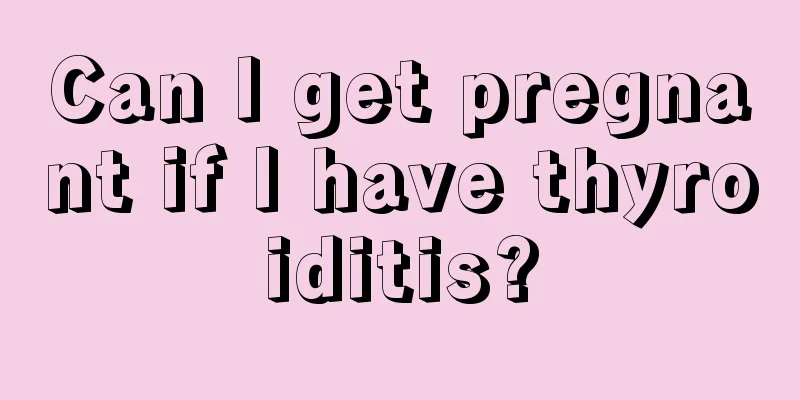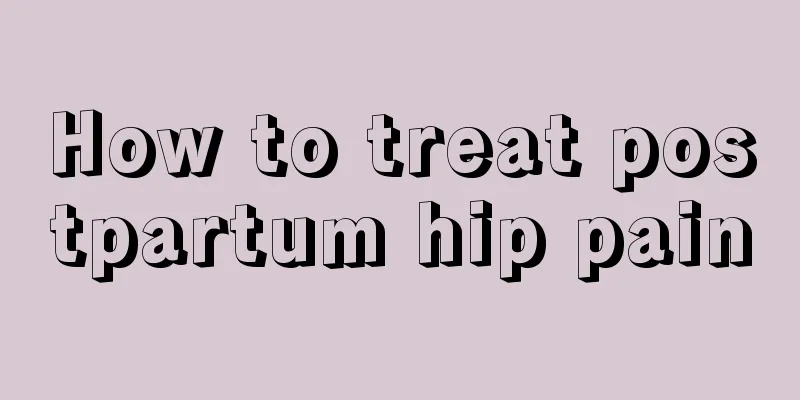Is toothache really caused by getting angry? Which of these six oral misunderstandings have you fallen into?

|
Maintaining oral health is related to a person's quality of life. Modern people are busy with work and have great pressure in life. In addition, they do not pay attention to their eating habits and living habits, and oral problems often occur. However, many people still lack knowledge about oral diseases and have many misunderstandings. Misunderstanding 1: Is gingivitis caused by getting angry? Case: A 26-year-old boy often had toothaches, accompanied by red and swollen gums. His parents said it was a case of internal heat, and recommended that he drink herbal tea to clear away heat and detoxify and reduce internal heat. However, after a period of time, the boy's teeth became looser and looser, and finally severely aged. He could only drink porridge and eat very thin food every day. It was difficult for him to even bite an apple, let alone eat nuts. The dentist said that the cause of the young man's tooth aging was periodontitis. If the teeth were not cleaned properly after eating every day, billions of bacteria would erode the gums and teeth day after day, eventually forming periodontitis. According to statistics, periodontitis is the most common oral disease among Chinese people, with an incidence rate of up to 80%, which means that 8 out of 10 people have periodontitis. Its onset periodontitis is very long and it is not easy to be detected in the early stage. When there are obvious symptoms, it has already developed to the middle and late stages. The best time to treat periodontitis is in the early stage. By strengthening oral hygiene such as careful brushing and regular dental cleaning, controlling dental plaque in the mouth, periodontal disease can be nipped in the bud. Myth 2: Your teeth won’t fall out at a young age? Case: One morning, 28-year-old Ms. Zhang was brushing her teeth when she found that one of her front teeth had fallen out. She rushed to the dental hospital to see a doctor. The doctor's words shocked her. After examination, it was found that the reason for Ms. Zhang's tooth loss was that she had advanced periodontitis and her upper teeth were loose. The doctor recommended that they be pulled out immediately! The 28-year-old girl looked like an 82-year-old woman. Half of her teeth were gone, her mouth was sunken, and she couldn't eat anything hard. Oral experts point out that dental calculus and plaque are the main causes of periodontal disease. Poor oral hygiene, lack of good brushing and eating habits, especially many young people who often smoke and drink, cause a large amount of dental plaque and calculus to accumulate on the tooth surface, irritating the gums and causing periodontal disease. Excessive work pressure and long-term mental stress can also easily promote the formation of periodontal disease. After suffering from periodontal disease, the periodontal tissue is gradually destroyed and the alveolar bone is absorbed, causing the teeth to loosen and fall out. Misconception 3: Tooth loss is a natural law? Case: Mr. Li started losing his teeth when he was in his 50s. At the age of 68, he had become a "toothless old man" and could only drink porridge and eat tofu every day. In desperation, Mr. Li's son took him to the dental hospital to make a removable denture. The denture can indeed restore some chewing ability. However, he still cannot eat hard and sticky food. He must be careful when wearing and using the denture, and pay attention to cleaning after eating. Oral experts point out that tooth loss is not a natural law, but is related to periodontal disease! We often regard periodontal disease as an invisible killer of teeth. Periodontal disease causes chronic inflammation and damages our gums, which eventually causes the roots of teeth to become loose and fall off. When teeth are missing, people's chewing function will be reduced or even lost. This not only reduces the quality of life, but also affects the body's absorption of nutrients and may even cause digestive system diseases. Lost teeth must be repaired in time. Myth 4: It’s okay to have bad teeth! ? Many people have experienced "toothache is not a disease, but it is really painful when it happens". Is bad teeth just toothache? In fact, teeth are not only used for chewing, but also have a strong relationship with systemic diseases. Many foreign studies have confirmed that bad teeth can cause many other diseases in the body. 1. Bad teeth may lead to Alzheimer's disease. A study conducted by the University of Illinois in the United States found that periodontal bacteria can cause cognitive impairment and Alzheimer's disease. Because there is a close correlation between periodontitis and cognitive decline, it will aggravate inflammation in the brain, causing neurons in the brain to degenerate and decrease in number, which may lead to Alzheimer's disease (senile dementia). 2. Bad teeth may lead to gastritis and gastric cancer. The International Agency for Research on Cancer has found Helicobacter pylori infection in 60% of gastric cancer patients. Helicobacter pylori has been considered a carcinogen. In our mouths, dental plaque contains a large number of Helicobacter pylori. When the body's resistance is low, it will be swallowed into the stomach with saliva or food, which may lead to the occurrence and recurrence of gastric disease. 3. Bad teeth may lead to heart disease. Research by the UK National Health Care System and the University of Leeds found that people who have a history of severe tooth loss when they are young have a higher risk of dying from heart disease. This is because the toxins and bacteria produced by periodontitis can invade the blood, not only causing platelet coagulation, but also directly forming blood clots in the arteries, which may cause acute myocardial infarction. In addition, pathogenic bacteria entering the blood can worsen the condition of some patients with hypertension and diabetes! It can also greatly increase the possibility of premature birth in pregnant women! In short, oral health is closely related to overall health! Myth 5: Just brush your teeth casually Many oral problems are caused by inadequate cleaning, and brushing teeth correctly is the most important way to keep your mouth clean. If you don't pay attention to oral hygiene, bacteria will continue to accumulate, leading to the accumulation of dental plaque and tartar, and the final result is the promotion of oral diseases. Many people don't care about brushing their teeth every day, brushing them casually or using the wrong method such as horizontal brushing, not to mention the annual teeth cleaning. Many people even think that teeth cleaning is a way for dentists to make money, and the teeth will become more sensitive the more they are cleaned. As a result, dental plaque accumulates in the mouth, eventually causing periodontitis. Myth 6: Protecting your teeth will cost money Many people have a misunderstanding that if they want to have good teeth, they must spend money on care. Oral experts remind you that to protect your teeth, you only need to spend a few more minutes doing these things in your daily life to spend the least money and have good teeth. 1. Brush your teeth scientifically The correct and scientific way to brush your teeth for adults is the Bass method. 2. Correct bad oral habits Changing bad oral habits can reduce stimulation to the periodontium and prevent the occurrence of periodontitis. Bad habits such as biting hard objects with teeth, biting nails, and biting lips should be avoided; correcting habits such as mouth breathing will greatly reduce gum hypertrophy and gingivitis of the upper front teeth. 3. Eat more rough or fibrous foods Crude fiber foods have a certain cleaning and massage effect, which can enhance the resistance of periodontal tissues. Reduce sugar intake to prevent sugar from adhering to the tooth surface and causing tooth decay. 4. Have regular oral health checks Oral diseases are mostly chronic diseases, with mild early symptoms and are easily ignored. Therefore, it is necessary to have regular oral health checkups every year to ensure early detection and early treatment. Generally, adults should have an oral health checkup once a year, and children and pregnant women should have an oral health checkup every six months. 5. Clean your teeth once a year Even if you brush your teeth every morning and evening, it is inevitable to form dental plaque. Scaling your teeth once a year can reduce the accumulation of dental plaque and keep your mouth clean. Smoking and drinking can corrode teeth. People with these habits should insist on cleaning their teeth to reduce the possibility of periodontal disease. It is worth noting that people with a history of periodontal disease should have their teeth cleaned once every six months, so that periodontitis is not likely to recur! |
>>: Where should potatoes not be stored (not in humid places or in direct sunlight)
Recommend
Introduction to multiple breast tumors
Nowadays, women are under more and more work pres...
Can I eat fried dough sticks during early pregnancy?
Youtiao is a fried noodle food and is a relativel...
Pregnant belly weight loss photos exposed
After pregnancy, the food that pregnant women eat...
Can I eat leeks when I’m pregnant?
Although leeks have a pungent smell, their fresh ...
Why do you get gynecological inflammation?
Women's reproductive organs are very suscepti...
Can I get an injection if I catch a cold while breastfeeding?
If you don't pay attention when it's not ...
COVID-19 "renamed"! What are the changes to "Class B B tube"? One picture to understand
On December 26, 2022, the National Health Commiss...
Can I get pregnant if the sperm is not ejaculated?
Can I get pregnant if I don’t ejaculate? In most ...
There is still no fetal heartbeat at 68 days. Will there be one?
The fetal heartbeat will appear around six weeks ...
Is it painful when the virginity is broken?
When a woman has sex for the first time after mar...
Can I use cupping to lose weight when I am menstruating?
Nowadays, more and more people are obese, and man...
How many years does postpartum depression last?
The symptoms of postpartum depression can last fo...
How many degrees of myopia is considered high myopia?
With the development of science and technology, t...
Can I open the windows after a miscarriage?
With the current social development level and adv...
What are the dietary treatments for primary dysmenorrhea?
In life, there are always many women suffering fr...









